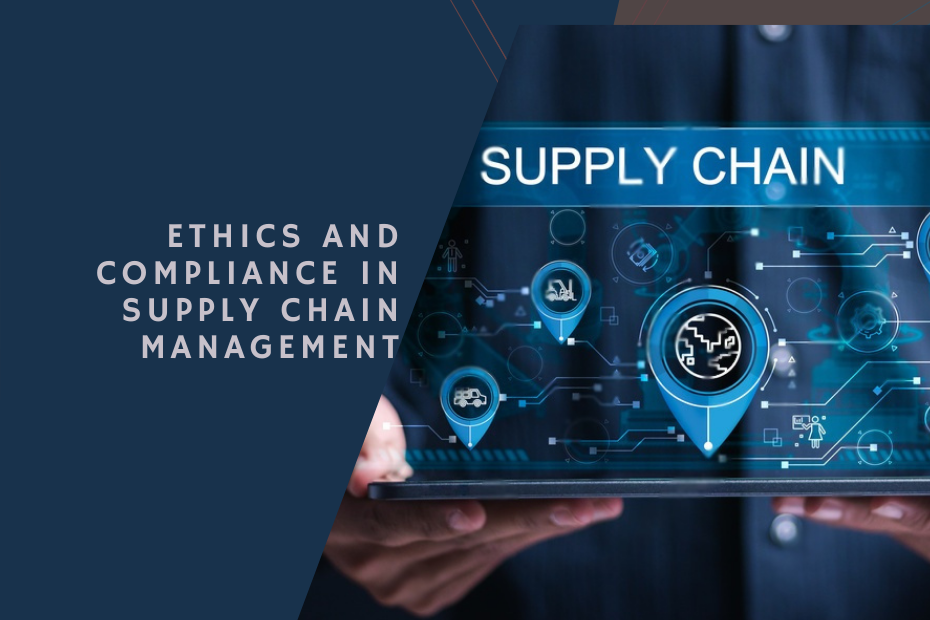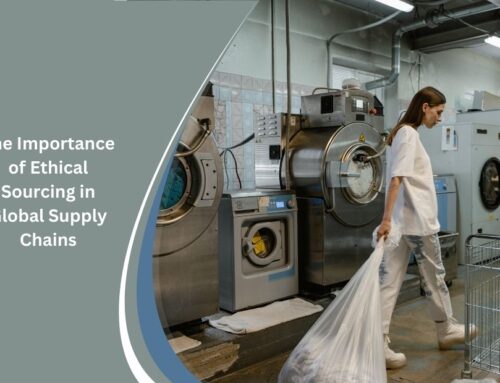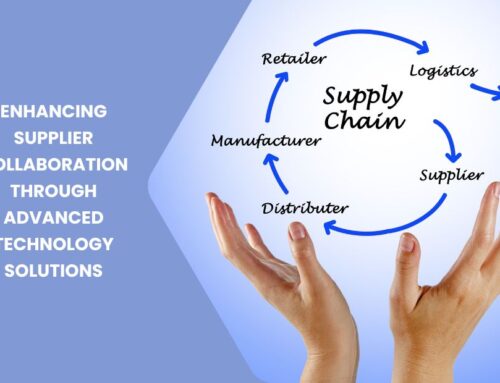In the increasingly interconnected and transparent global market, the importance of ethics and compliance in supply chain management cannot be overstated. These principles are essential for building trust, ensuring sustainability, and maintaining a competitive edge. This article explores why ethics and compliance are crucial in supply chain management, highlighting key areas such as ethical sourcing, risk management, technological integration, and the benefits of maintaining high ethical standards. By understanding and implementing these practices, businesses can enhance their reputation, meet regulatory requirements, and foster long-term success.
As businesses operate on a global scale, the complexities of managing supply chains have increased. Ethical lapses can lead to severe repercussions, including legal penalties, reputational damage, and financial losses. Therefore, companies must prioritize ethics and compliance to ensure that their operations are sustainable and socially responsible. This article aims to provide a comprehensive understanding of why these principles are vital and how they can be effectively integrated into supply chain management.
Ethical Sourcing
Ethical sourcing involves procuring goods and services in a manner that respects human rights, labor standards, and environmental sustainability. Companies must ensure that their suppliers adhere to fair labor practices, avoid exploitative conditions, and minimize environmental impact. Ethical sourcing not only aligns with legal and moral obligations but also enhances brand reputation and customer loyalty. Consumers today are more aware and selective about the ethical practices of the brands they support, making it essential for companies to uphold these standards throughout their supply chain.
For instance, ethical sourcing can include measures such as avoiding suppliers that engage in child labor or environmental degradation. Companies like Patagonia and Unilever have set examples by maintaining transparent factory lists and using third-party auditors to ensure compliance with their ethical standards. This transparency builds trust with consumers and stakeholders, demonstrating a commitment to ethical practices.
Moreover, ethical sourcing can lead to long-term cost savings by reducing the risk of supply chain disruptions and improving relationships with suppliers. By investing in sustainable and ethical sourcing practices, companies can create a more resilient and reliable supply chain, capable of adapting to market changes and regulatory requirements.
Risk Management
Effective risk management in supply chains involves identifying, assessing, and mitigating potential risks that can disrupt operations. Ethical lapses in the supply chain can lead to significant reputational damage, legal penalties, and financial losses. Companies must implement comprehensive risk management strategies that include regular audits, supplier evaluations, and contingency planning. This proactive approach helps mitigate risks associated with unethical practices, such as forced labor or environmental violations.
For example, businesses can conduct thorough due diligence on new suppliers, including background checks and audits, to ensure they meet ethical standards. Continuous monitoring and regular assessments can help identify and address potential risks before they escalate into major issues. Companies like Apple and Nike have faced scrutiny and legal challenges due to unethical practices in their supply chains, highlighting the importance of robust risk management.
Additionally, businesses can use technology to enhance risk management. Tools like AI and blockchain can provide real-time insights into supply chain activities, helping companies identify and respond to potential risks more effectively. This technological integration ensures that ethical standards are maintained throughout the supply chain, reducing the likelihood of disruptions and enhancing overall resilience.
Technological Integration
The integration of advanced technologies such as blockchain, AI, and IoT can significantly enhance visibility and accountability in supply chains. Blockchain technology, for instance, provides a secure and transparent ledger of all transactions, making it easier to track and verify the origins of products. AI can analyze vast amounts of data to identify patterns and predict potential ethical issues, while IoT devices can monitor conditions in real-time to ensure compliance with ethical standards.
By leveraging these technologies, companies can create more transparent and accountable supply chains. For instance, blockchain can ensure that all transactions are recorded immutably, making it easier to track the journey of a product from raw material to finished goods. IoT devices can provide real-time data on working conditions, helping to ensure compliance with labor standards.
Technological integration also supports continuous improvement by providing detailed insights into supply chain performance. Companies can use this data to identify areas for improvement and implement changes that enhance ethical practices. This proactive approach not only ensures compliance but also drives innovation and efficiency in supply chain operations.
Sustainability and Circular Supply Chains
Sustainability is a key component of ethical supply chain management. Companies are increasingly adopting circular supply chain models that prioritize reducing waste, reusing materials, and recycling products. This approach not only minimizes environmental impact but also aligns with consumer expectations and regulatory requirements. By focusing on sustainability, businesses can enhance their brand image and reduce costs associated with waste and inefficiency.
For example, companies can implement recycling programs for used products or redesign their products to be more sustainable. These efforts not only reduce environmental impact but also create new business opportunities by tapping into the growing market for sustainable products. Brands like IKEA and HP have successfully integrated circular supply chain practices, resulting in reduced waste and increased customer satisfaction.
Sustainability also involves ethical labor practices, ensuring that workers are treated fairly and that working conditions are safe. Companies can conduct regular audits and collaborate with third-party organizations to verify that their suppliers adhere to these standards. By prioritizing sustainability, businesses can build stronger relationships with suppliers and customers, enhancing overall supply chain resilience.
Enhanced Visibility and Accountability
Transparency is crucial for maintaining ethical supply chains. Companies need visibility into their entire supply chain, including lower-tier suppliers, to ensure compliance with ethical standards. Enhanced visibility allows businesses to monitor supplier practices, identify potential ethical issues, and take corrective action. Accountability mechanisms, such as third-party audits and certification programs, further ensure that suppliers adhere to established ethical standards.
For instance, companies can use supply chain mapping tools to gain insights into their suppliers’ practices and ensure they comply with ethical standards. Regular audits and certification programs can help maintain high standards and build trust with consumers and stakeholders. Brands like Nestlé and Mars have implemented rigorous supply chain transparency measures to ensure ethical practices and enhance their reputations.
Enhanced visibility also supports risk management by providing real-time data on supply chain activities. Companies can use this information to identify and address potential risks before they escalate, ensuring continuous compliance with ethical standards. This proactive approach enhances overall supply chain resilience and performance.
Building a Culture of Compliance
Creating a culture of compliance within the organization and across the supply chain is essential for ensuring ethical practices. This involves setting clear ethical standards, providing training for employees and suppliers, and establishing mechanisms for reporting and addressing ethical violations. A strong culture of compliance not only prevents unethical behavior but also fosters a positive work environment and enhances overall business performance.
Companies can start by developing a comprehensive code of conduct that outlines their ethical standards and expectations. Training programs can help employees and suppliers understand these standards and how to apply them in their daily operations. Mechanisms for reporting violations, such as whistleblower programs, can help identify and address issues promptly.
For example, businesses can implement regular training sessions on ethical practices and compliance requirements. These sessions can cover topics such as anti-corruption, labor rights, and environmental sustainability, ensuring that all employees and suppliers are aware of and adhere to the company’s ethical standards.
Long-Term Benefits of Ethical Supply Chains
Maintaining high ethical standards in supply chain management offers several long-term benefits. It enhances brand reputation, builds consumer trust, and attracts socially conscious investors. Additionally, ethical supply chains are more resilient and adaptable to changing market conditions and regulatory requirements. By prioritizing ethics and compliance, companies can create sustainable and competitive advantages that drive long-term success.
For example, companies with strong ethical standards are more likely to attract and retain loyal customers who value responsible business practices. These companies are also better positioned to navigate regulatory changes and avoid legal penalties, ensuring long-term sustainability and growth.
Ethical supply chains also foster innovation by encouraging companies to explore new, sustainable practices and technologies. This continuous improvement not only enhances operational efficiency but also drives overall business performance. Companies like Tesla and Google have benefited from their commitment to ethical practices, resulting in increased customer loyalty and market competitiveness.
In conclusion, ethics and compliance are crucial components of effective supply chain management. By prioritizing ethical sourcing, implementing robust risk management strategies, leveraging advanced technologies, and fostering a culture of compliance, businesses can build resilient and sustainable supply chains. These practices not only enhance operational efficiency but also strengthen brand reputation and foster long-term success. Understanding and implementing these principles is essential for any business looking to thrive in today’s competitive environment. With the right approach, companies can build supply chain networks that are not only efficient but also resilient and adaptable, ensuring long-term success and customer satisfaction.










